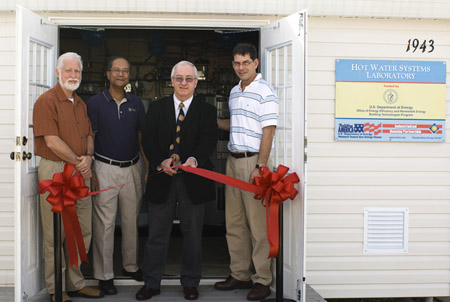The Florida Solar Energy Center (FSEC), a research institute of the University of Central Florida, is offering a series of five courses on “Designing and Maintaining the High Performance Green Building” for architects, engineers, mechanical contractors, building inspectors, facility managers and indoor air quality specialists. Initial course offerings will be held at FSEC in Cocoa starting Feb. 4.
This series of courses will demonstrate:
- How to design and maintain a green building that has good indoor air quality
- How to make a building durable, comfortable and energy efficient
- How to protect buildings from mold
- What types of air-conditioning systems will cause mold problems
- What advanced dehumidification technologies are available for use in buildings.
“A recent study finds about 25 percent of the U.S. Green Building Council’s Leadership in Energy and Environmental Design (LEED)-certified green buildings use more energy than expected and about 12 percent use more energy than allowed by the building code. Our courses will provide the knowledge to address these issues,” said Rob Vieira, director of buildings research at FSEC.
The courses will focus on problems in commercial buildings, although the principles discussed will be applicable to all buildings. The FSEC buildings researchers will discuss such areas as ventilation requirements, humidity control, building envelope design, pressure imbalances, HVAC systems, window selection, vapor barriers and related issues.
Students who attend all five courses in the series and pass the exam in Courses one, two and three will earn an FSEC Green Commercial Building Design and Maintenance Certificate.
The courses and schedules are:
Course 1: “Designing Building Envelopes to Control Air and Moisture in High Performance Green Buildings,” Feb. 4
Course 2: “Designing and Maintaining Building Air Flows in High Performance Green Buildings,” Feb. 5
Course 3: “Designing and Maintaining HVAC Systems for High Performance Green Buildings,” Feb. 18
Course 4: “Design Charrette — Practice Design of a High Performance Green Building,” Feb. 19
Course 5: “Commercial Energy Code and Green Building Modeling Using EnergyGauge Summit,” Feb. 26
The cost of each course is $269. For more information about the courses or to register, visit: www.floridaenergycenter.org/go/courseschedule.
